
Melbourne’s Alfred Health has gone live with the SafeScript real-time prescription monitoring system in The Alfred’s emergency department, with plans to roll it out to all wards and outpatients in the next month.
The system is integrated into Alfred Health’s Cerner electronic medical record with a link to the Victorian instance of the National Data Exchange (NDE), allowing clinicians to be alerted if there is a concern about the patient relating to the drug that's been prescribed.
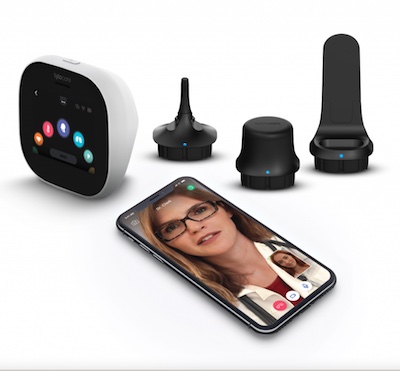
ACT-based residential aged care provider Goodwin Aged Care Services is working with GP clinic Next Practice Deakin on a new trial of remote monitoring technology to allow GPs to conduct physical consults remotely.
The technology provides aged care nurses with a suite of tools that allow examination of the ears, nose, lungs, heart, throat, skin, abdomen and temperature, which is controlled and reviewed remotely by the GP in real-time.
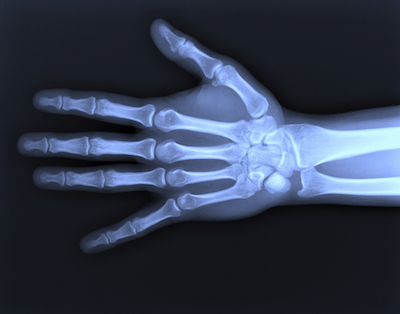
Sonic Healthcare’s Queensland diagnostic imaging subsidiary Queensland X-Ray has connected to My Health Record, allowing its 50 practices to upload diagnostic imaging reports to the national system.
Queensland X-Ray is the state’s largest private radiology provider. While the actual images are not uploaded, the radiologists’ reports are.
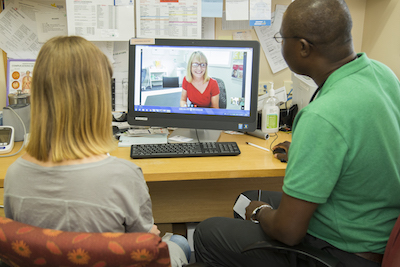
New Zealand’s South Island Alliance Programme Office (SIAPO) has approached the market to look for information on potential solutions to its multivendor telehealth environment, seeking an interoperable fix that will allow telehealth consultations to be run on Microsoft Teams or Zoom.
SIAPO says vendors need to display the capacity and capability to deliver both the initial project as well as ongoing support throughout the South Island, and who are future-proofing telehealth and video conferencing functionality for the next five to 10 years.

Private hospital operator and health technology solutions vendor Macquarie Health Corporation (MHC) has reported a cyber incident with systems taken off-line as a precaution last Thursday and the attack continuing this week.
The incident is being described as ransomware attack by a group called Hive, which attacks systems running Microsoft's Windows operating system, and that the hackers are boasting that patient data is for sale on the dark web.

Former Australian Institute of Business (AIB) CEO Paul Wappett has been appointed as the new CEO of the Royal Australian College of General Practitioners (RACGP).
He takes over from Matthew Miles, who resigned after a short stint in the position following the resignation of long-term CEO Zena Burgess.
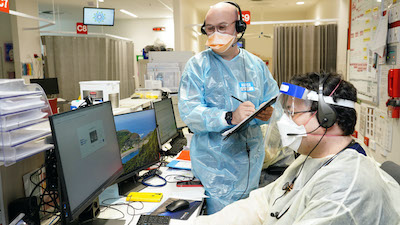
Victoria’s Goulburn Valley Health (GV Health) has signed with emergency specialist telehealth support service My Emergency Doctor to provide remote after-hours emergency medicine services.
GV Health – which operates the Shepparton Hospital and health clinics, community and aged care services in Shepparton, Rushworth and Tatura – joins regional and metro healthcare organisations in using My Emergency Doctor, which is staffed by fellows of the Australasian College for Emergency Medicine (FACEM).

South Korea’s My HealthWay app, India’s Digital Health ID, South Africa’s vaccine certificate, Sweden’s vaccine pass, telehealth for mental health in EDs, machine learning and SDOH, HL7’s gender harmony project, Babylon to list on NYSE, CLEAR HealthPass on iPhones, ransomware implicated in child’s death
South Korea’s My HealthWay: A “digital highway” of personal health records, but to where?
BMJ ~ Junho Jung ~ 24/09/2021
By 2022, once electronic medical record (EMR) compatibility issues are resolved between institutions, all personal health records will be stored in this single app.

A big week in health IT kicked off on Monday with the announcement that medical specialist software vendor Genie Solutions had been sold to Citadel Group for the very healthy sum of $260 million. Considering that a majority stake in Genie was sold just four years ago for $55m, this is a pretty good return on investment for its private equity investors, but coming off the back of the extraordinary amount that Telstra Health paid for MedicalDirector, it shows that there is serious money out there at the moment for technology stocks.
We understand from immaculate sources that Genie Solutions was still planning to publicly list as late as last week, but had also been in discussions with Citadel for some time and was also offered up to Telstra Health. Telstra had to decide between MedicalDirector and Genie as it could not afford both, and chose the former, paying $350m for the GP sector’s second most used software. While understandable in the short term considering Telstra has long spoken about joining up disparate parts of the healthcare system in Australia, of which GPs are fundamental, but when it comes to long-term growth, we think Genie was the better bet.
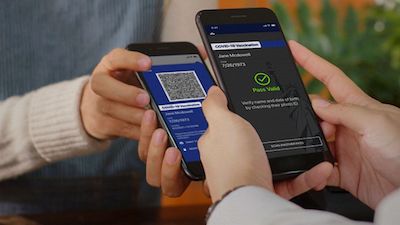
Sydney Local Health District will be the first Australian public health service to provide COVID-19 vaccination certificates using HL7 FHIR-based SMART Health cards, which promise a standards-based, secure way to issue and verify test results and vaccination records.
Apple is also set to allow SMART Health cards to be added to both the Wallet and Health apps with the release of iOS 15.1 in the next fortnight.
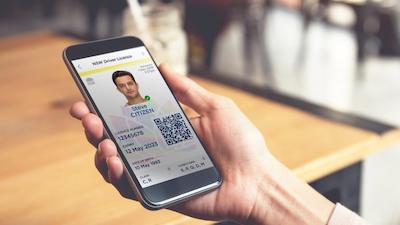
The Australian government is working with the states and territories to add COVID vaccination certificates to each jurisdiction’s check-in apps, arguing the approach was necessary as public health orders and check-in QR codes are controlled by the states.
NSW began its trial of vaccination certificates in its Services NSW app this week, although the site of the two-week trial and how it will work is still not public, and the trial period extends beyond the October 11 opening up day for fully vaccinated people in NSW announced yesterday.
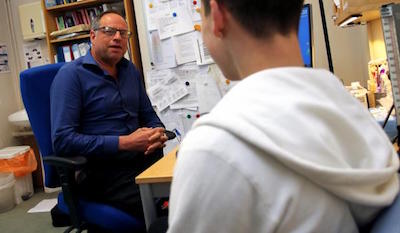
The WA Primary Health Alliance (WAPHA) has applied for an exemption to competition rules to develop and roll out a new GP data extraction tool and supply it to other Primary Health Networks (PHNs), in a move opposed by the medical software industry’s peak body.
The PHNs are planning to develop a new tool called Primary Sense 2, building on the existing Primary Sense tool developed by the Gold Coast PHN, which performs a similar function as Pen CS’s Cat4 and Topbar and Outcome Health’s POLAR tool for extracting data for programs such as the quality improvement practice incentive (PIP QI).
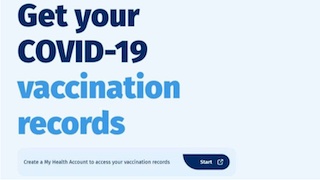
The New Zealand government is preparing to roll out vaccine passports, setting up a My Covid Record website that will give people access to COVID-19 test results and proof of vaccination certificates.
Users will need to set up a My Health account through the website, which they can register for now, or use the existing RealMe digital identity service.
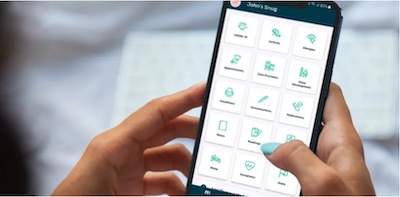
Health insurer nib is piloting a program with new buying partner Honeysuckle Health to trial Tasmania’s Snug digital health app.
nib plans to provide around 1000 members with a free digital subscription to the Snug app, which lets them capture their health information in one centralised and secured location on their smart device.

When the relentless Delta variant made its way through New Zealand’s defences in August, the Prime Minister locked down the country without a second to spare. We had been here before, so Kiwis were ready to fall back into working remotely – or so we like to think.
In truth, nothing has tested data security systems more than hybrid work environments. Whether it be the merging of personal and work devices, or creation of digital shortcuts, in many cases, convenience has plagued the systems put in place to protect organisations from security breaches – not least within the healthcare sector.

Online appointment booking and directory service HealthEngine has partnered with pharmacy medication delivery service Chemist2U to offer free home delivery of prescription medications in Brisbane, Melbourne and Sydney.
HealthEngine says more locations will be added in the coming weeks as the company increases its focus on the pharmacy market, following agreements with Symbion to interface its Minfos dispensing system with the booking system, the addition of a new nfluenza vaccine booking feature and the option to look for a Moderna vaccine through community pharmacies added to its directory site.

Healius Pathology subsidiaries QML (Queensland Medical Laboratories) and TML (Tasmanian Medical Laboratories) have connected to the My Health Record system, allowing more consumers in those two states and in northern NSW to access their pathology test reports on the national system.
Sister company IQ Pathology, a Brisbane-headquartered specialist dermatopathology lab, is also now connecting to the system.

Health and enterprise software business The Citadel Group has bought Australia’s market-leading specialist medical practice management software vendor Genie Solutions.
The price was undisclosed, but is understood to be around $260 million. Genie’s former majority owner IFM Private Equity paid more than $50 million when it invested in the software firm in 2017.

Shady US doctor group promoting COVID misinformation and treatments exposed, India officially rolls out national digital health ID cards for 1.38 billion people, Google DeepMind facing lawsuit over NHS access, remote clinical pharmacists, telemedicine networks for remote Canada, Epic's COVID-19 vaccine credential
Network of health care providers is making millions off hydroxychloroquine and ivermectin, hacked data reveals
The Intercept ~ Micah Lee ~ 29/09/2021
The data also reveals that 72,000 people paid at least $6.7 million for Covid-19 consultations promoted by America’s Frontline Doctors and vaccine conspiracist Simone Gold.

We know we keep banging on about it but another week in Australian pandemic news has again brought home how weak and disjointed our collective IT response has been, despite the considerable arsenal of top-notch systems that have already been developed for our health authorities and governments to use.
And yet we continue to try to reinvent the wheel. Nowhere was this more apparent than the announcement of a new Australian Digital Health Agency-led (ADHA) project for an assessment framework for mobile health apps. ADHA held a webinar on the topic this week that in our opinion was so badly staged we are not even deigning to report on it.

Amazon Web Services (AWS) will open an infrastructure region in New Zealand in 2024, headquartered in Auckland and allowing government, education and non-profit organisations to run their applications from local data centres.
AWS plans to invest $NZ7.5 billion over the next 15 years through the new Auckland region, which includes the construction of data centres, operational expenses such as ongoing utilities and facility costs, and purchases of goods and services from regional businesses.

Health technology giant Royal Philips has partnered with US-based telehealth provider Teladoc Health to market a virtual care platform to Australian and New Zealand healthcare organisations.
The platform is aimed at the hospital sector as well as enterprise-level healthcare organisations, but also involves primary care capacity as well as hospital in the home.
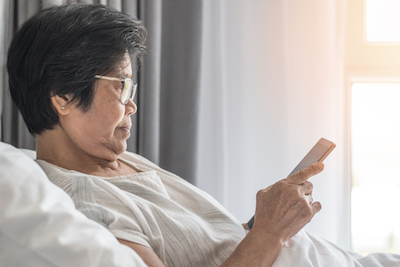
Digital business consultancy DB Results is working with medical device developer Lenexa Medical to implement Lenexa’s pressure injury prevention solution for the aged care sector.
The Lenexa medical device is currently undergoing trials at a regional hospital in Victoria and claims to assist clinicians in positioning patients as well as providing real time monitoring for pressure injury risk.
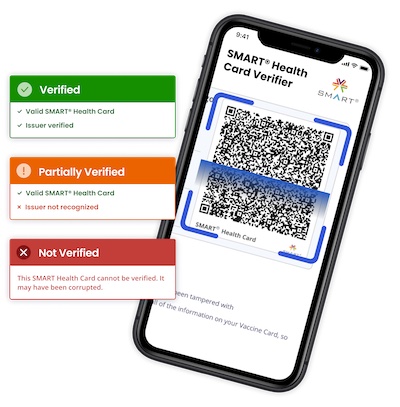
A ready-made, standards-based solution for domestic Australian and New Zealand vaccine passes or passports is available already through the internationally accepted SMART Health Card framework, experts say, in the face of increasing evidence that governments are venturing down different paths.
NSW has announced it will trial a state-wide solution linking the vaccine certificates issued through the Australian Immunisation Register (AIR) to the NSW government’s Service NSW app, and other states are said to be considering adding a link to the federal Medicare Express Plus app to the check-in apps currently in use.
However, industry experts say a ready-made solution is already available through the Vaccine Credential Initiative’s (VCI) SMART Health Card framework, which uses the FHIR specification and has been signed up to by the world’s leading software developers, including Microsoft, Oracle, AWS and Salesforce, along with EMR vendors Cerner and Epic, and standards organisations like The Commons Project.
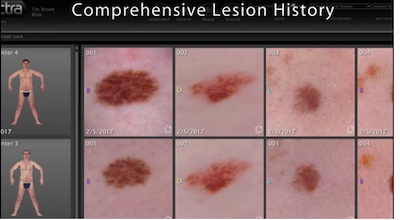
A telemedicine-powered network has been launched to support the roll-out of the Vectra 3D imaging system for melanoma detection in Australia.
Initially developed for cosmetic purposes, the technology uses integrated software to map and monitor pigmented lesions and diseases of the skin and represents the world’s first use of 3D imaging for melanoma detection.
The recently launched Australian Cancer Research Foundation (ACRF) Australian Centre of Excellence in Melanoma Imaging and Diagnosis, which involves the University of Queensland, the University of Sydney and Melbourne’s Monash University.
UQ dermatologist Peter Soyer said the technology enabled researchers to track moles and skin spots over time using full body mapping.

InterSystems has appointed former Orion Health vice president of services Brian Biggs as its new director of customer relations and sales for New Zealand.
Based in Auckland, Mr Biggs will be involved in the oversight of the New Zealand operations of InterSystems, which has signed a number of new customers recently along with major client MercyAscot.

Clinical and practice management software vendor MedicalDirector has announced it will manage the new Provider Digital Access (PRODA) authentication process for Medicare Web Services on behalf of its users.
Services Australia is moving to a new web services system for claims and authentication, replacing the existing client adaptor and public key infrastructure systems, requiring a manual authentication process by each practice.

Sonic Imaging Australia is rolling out the new artificial intelligence-based Annalise CXR decision support solution to a number of its standalone clinics as well as some of the major hospitals it contracts to.
Annalise CXR is a joint venture between Australian healthcare technology company Harrison.ai and diagnostic imaging provider I–MED Radiology Network, where the software has been rolled out at 250 I-MED clinics so far. The agreement with Sonic Imaging will see it implemented at a further 100 radiology clinics nationwide.

India’s digital health mission, Irish views on health data security, US patient coalition for digital health, AI for prostate cancer, electronic health information defined, privacy fears over NHS App, Sequoia Project’s common elements, negative feedback spurs EMR improvements, Apple live with health data sharing, $US1 billion for remote monitoring for veterans
PM Modi to roll out National Digital Health Mission on Sep 27
Hindustan Times ~ Rhythma Kaul ~ 24/09/2021
The mission essentially consists of four main building blocks -- unique digital health id, health care professionals registry, health facility registry and electronic health records.
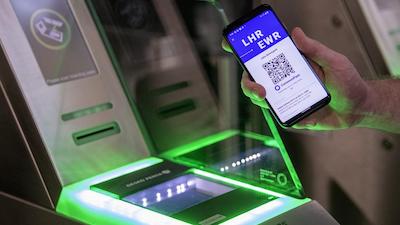
Vaccine passes were back in the news this week as Victor Dominello, NSW Minister for Customer Service – yes, that is his real title – got on the blower to spread the word that the NSW government will trial an addition to the existing Service NSW app that will draw down data from the Australian Immunisation Register (AIR) and allow fully vaccinated NSW residents free movement within the state.
While a PDF of the vaccine certificate is currently available through the Express Plus Medicare app – and My Health Record, although no one ever mentions this – the idea behind the NSW system is that it will be added to an already widely used app that also allows people to check into venues, so users only need to open the one app. Security will be similar to what already covers NSW’s digital driver’s licences, and so should be exceptionally good. (The PDF can also be downloaded to the Apple Wallet and Google Pay, too, which is useful.)
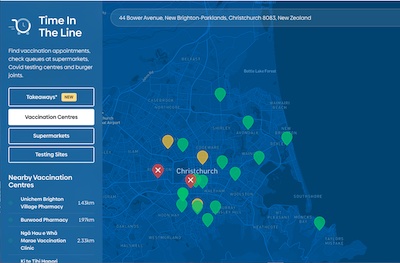
Wait-time site Time in the Line has teamed up with the New Zealand Ministry of Health to add vaccination booking data to the website.
NZ has also launched a digital tool using Healthpoint’s FHIR API to support Māori communities to find vaccination centres.

Nuance Communications has released its AI-powered, cloud-based PowerScribe One radiology reporting platform in Australia and New Zealand, promising enhanced reporting quality and efficiency and reduced radiologist fatigue.
It has also made available its mPower Clinical Analytics solutions, which promise data-driven insights to decrease failed follow-ups.

NSW is set to adopt a version of South Australia’s home quarantine monitoring technology, which the SA government has been trialling to reduce the need for interstate and returning travellers to quarantine in hotel or medi-hotel facilities.
South Australia is set to expand its use of the Home Quarantine SA app from next month, with plans being put in place to manage up to 250 travellers every week.

The annual Successes and Failures in Telehealth (SFT) conference will be held virtually this year due to the uncertainty over cross-border travel due to the ongoing COVID-19 outbreak.
Despite being planned originally as a face-to-face event, the conference organisers at the Centre for Online Health at the University of Queensland and the Australian Telehealth Society (ATHS) will now hold it virtually in November.
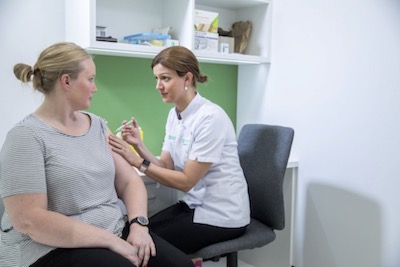
Consumers can now begin to search for community pharmacies offering the Moderna “SpikeVax” vaccine on HealthEngine’s directory site to book an appointment online, with Good Price Pharmacy Warehouse and some independent sites already listed.
The new search feature adds Moderna as an option with Pfizer and AstraZeneca to help people find appointments, with large franchise and independent community pharmacy store locations set to be onboarded in the next few weeks.

Registration is now open for doctors, pharmacists and nurse practitioners to register for Queensland’s QScript real-time prescription monitoring system, which is set to launch later this year.
QScript has been built on the same Fred IT-based platform as Victoria’s SafeScript and South Australia’s ScriptCheckSA systems. ACT Health also plans to roll out the same system, dubbed Canberra Script, later this year.
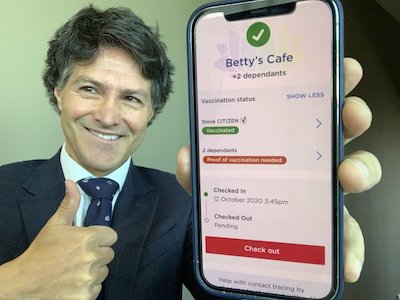
The NSW government is planning to hold a two-week trial of its vaccine passport, which will see data from the Australian Immunisation Register (AIR) added to the Service NSW app, which also allows people to check into venues.
NSW Minister for Customer Service and Minister for Digital Victor Dominello said Service NSW was still consulting with industry but the plan was to have closed pilots of between 100 and 500 people in regional NSW from October 6.
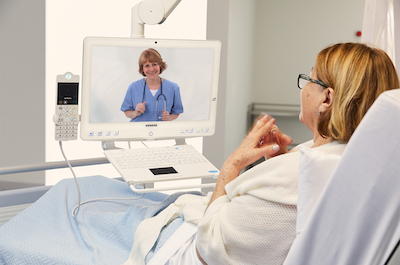
Gold Coast University Hospital has rolled out virtual care technology to support remote consultations in COVID-19 wards using bedside terminals and Rauland Australia’s Concierge platform.
The hospital is now equipped with high-tech bedside terminal solutions, enabling remote consultations into the designated COVID-19 ward so patients and staff can communicate face to face via the bedside terminal with no human contact.
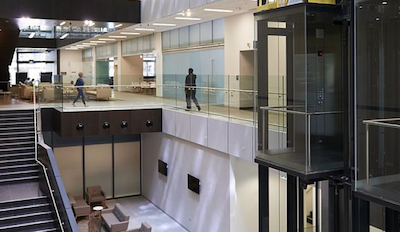
Sydney cancer hospital Chris O’Brien Lifehouse has become the first in Australia to upgrade to MEDITECH’s web-based Expanse electronic health record, going live with its ambulatory module for outpatients last December and its acute module for inpatients a fortnight ago.
Lifehouse has used a MEDITECH system for its patient administration needs for over six years and three years ago rolled out of an integrated suite of modules for pharmacy, stock control and oncology, including electronic ordering of chemotherapy drugs and treatment plans.

Pharmacies are now able to join the AusVaxSafety vaccine safety surveillance program for the roll-out of the Moderna COVID-19 vaccine following a successful trial of MedAdvisor’s PlusOne platform linked to the SmartVax SMS tool.
The system uses secure cloud technology to link vaccinations to the smartphone-based SmartVax, which collects and reports an individual’s experience following immunisation to AusVaxSafety.

Healthcare organisations needing to renew their National Authentication Service for Health (NASH) certificate can now obtain a SHA-2 certificate through Health Professional Online Services (HPOS) if their software products are compatible.
The software industry is moving from SHA-1 to SHA-2 for improved security and from next March, only SHA-2 compatible products will be able to access systems using NASH.
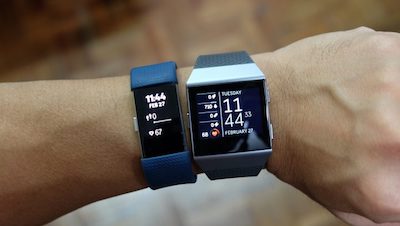
SDOH data exchange, hacking hospitals, data breach notifications, digital healthcare standards, US trends in telehealth, AI for cancer screening could lead to over-diagnosis, wearables data exposed, app for long Covid, England scraps plans for domestic vaccine passport, Malaysia’s MySejahtera vaccine certificate app
DirectTrust launches consensus body for SDOH data exchange interoperability
EHR Intelligence ~ Hannah Nelson ~ 16/09/2021
DirectTrust has announced the launch of a consensus body to advance social determinants of health (SDOH) data exchange interoperability.
Cyberattacks on health care are rising — but many hospitals aren’t prepared
Discover Magazine ~ Molly Glick ~ 14/09/2021
Hackers are ramping up medical system breaches and demanding large ransoms, highlighting the dark side of increasingly digital-focused patient care.

We finally got to the bottom of exactly what has been going on with NSW Health’s vaccine booking system this week, discovering through the NSW tender site that a contract had been signed with ServiceNow Australia for a full vaccine management system way back in May. A new system has since been gradually rolled out to replace the hastily put-together appointment booking conglomeration our correspondent had struggled for several weeks to use, which we wrote about back in July.

US-headquartered cloud computing platform vendor ServiceNow has been awarded a $6.34 million contract to roll out a vaccine management software solution for the COVID-19 response in NSW.
The solution is replacing NSW Health’s CoVax system, an ad hoc solution first rolled out in February at South Western Sydney Local Health District’s Liverpool Hospital to handle phase 1A vaccinations for frontline workers.
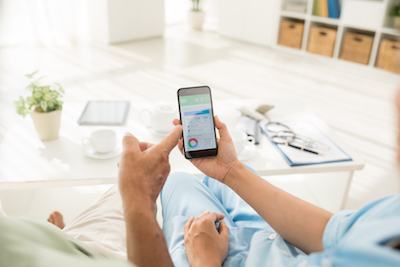
South Australia’s Commission on Excellence and Innovation in Health is on the market for a statewide patient reported measures (PRM) solution, encompassing both patient reported outcome measures (PROMs) and patient reported experience measures (PREMs).
The proposed solution is aimed at collecting and reporting PROMs and PREMs to empower patients to record the impact of their health condition on their life, what quality of life they are aiming for, their experience of the health system and whether what the health system does actually makes a difference to their lives.

Hawke’s Bay-based Kaweka Health has chosen Orion Health to roll out a hospital information system at its new private surgical hospital in Hastings, due to open next year.
The $70 million elective surgery facility will open in May 2022 with four operating theatres, a full post-procedure recovery room, recovery space and five overnight beds, with a 23-bed ward and specialist consulting rooms to open in December 2024.

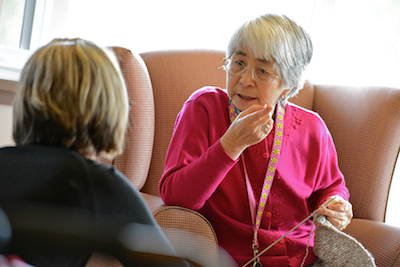
ASX-listed HSC Technology Group has signed an agreement with Tunstall Healthcare to roll out HSC’s personal emergency response (PERs) devices at aged and community care facilities using Tunstall’s telecare solutions.
The move has been precipitated by Telstra’s pending 3G shutdown, which requires 300,000 Australian PERs devices to be upgraded before 2024.

The Australian Department of Health has issued a request for information (RFI) on the make up of a new operating and funding model for electronic prescribing to come into effect next year.
The RFI aims to achieve five key improvements across what it calls the “electronic prescribing ecosystem” (EPE), encompassing digital improvements for prescribers, patients and dispensers.

The implementation of Epic's electronic medical record at Melbourne’s Royal Children’s Hospital (RCH) has been associated with a reduction in mortality rate that continues to be sustained over time, new research shows.
RCH has been monitoring clinical outcomes following the implementation of its Epic EMR in April 2016 and presented data at the Health Informatics Conference in Melbourne in 2019 that showed early evidence of a reduction in mortality rate of 25 per cent.

Adelaide’s Flinders Medical Centre (FMC) has gone live in its inpatient wards and emergency department with Allscripts’ Sunrise electronic medical record, following earlier roll outs in its outpatients department.
The implementation at South Australia’s second-largest hospital also saw the replacement of the previous patient administration system in March.
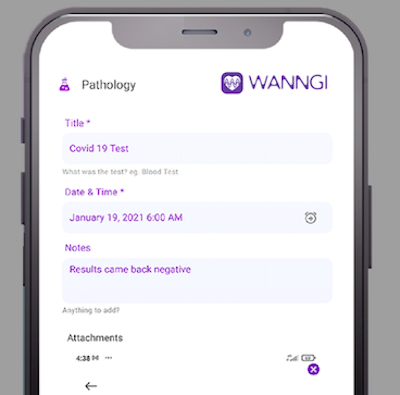
Health management app developer Wanngi has added a new category aimed at community nurses and allied health professionals to interact with patients when updating health records.
Wanngi underwent a redesign recently with a number of new features added, including the ability to store and display COVID-19 test results and vaccination details along with medical history, medications and diagnostic images.
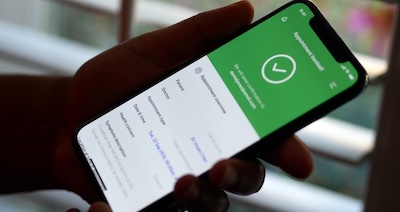
UK-based telehealth provider Doctor Care Anywhere has made a strategic investment in the Australian market, buying Tasmanian-headquartered virtual GP and mental health service GP2U Telehealth for $11 million.
Doctor Care Anywhere listed on the Australian stock exchange in January 2021, raising $102 million, with a stated intention to explore the establishment of an Australian arm of the business this year.

COVID-19 Eligibility Checker portal host Healthdirect Australia has released a financial offer to the online clinical booking service providers to assist them to get general practices and pharmacies to adopt online booking systems and improve real-time information on appointment availability flowing to the official Vaccine Clinic Finder site.
The offer, which specifically excludes services such as COVID-19NearMe or gpvaccinesearch.com that aggregate appointments from existing booking engines or state-run vaccination centres, aims to reduce the number of vaccine clinics that are listed as ‘phone only’ bookings and improve uptake of online bookings.
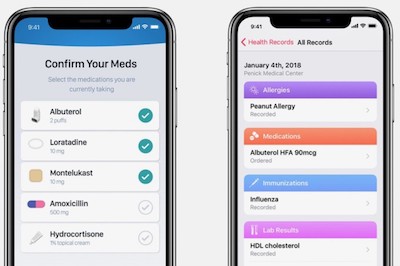
Will Apple succeed where Google and Microsoft failed? health tech for low-resource countries, vax passport news for Thailand, Italy, Canada and England, Babylon expands in Rwanda, vulnerabilities in infusion pumps, telehealth use continues to drop, COVID-19 tracking apps
After Google, Microsoft struck out, can Apple get people to use its health records feature?
MedCity News ~ Elise Reuter ~ 06/09/2021
Apple has integrated with 700 providers for its health records app. But it faces a similar challenge to other health records projects that have failed in the past: patient uptake.
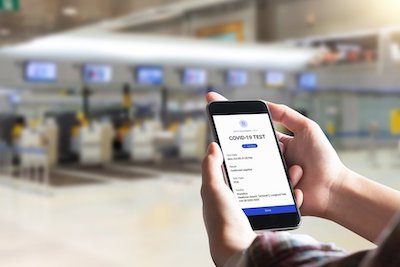
Vaccine passports are shortly to become the next digital battleground in the fight against the COVID-19 pandemic, but unfortunately they are likely to be as divisive as contact tracing apps have been so far. Various Australian states and territories are expected to release details on exactly how these passports will work in a domestic sense in the next couple of weeks, with a national standard for vaccine passports for international travel still a bit up in the air.
Services Australia has done a pretty good job in getting vaccine certificates quickly available on the Medicare Express Plus app – they are also available on My Health Record, although few seem to be going there – and mandatory reporting to the Australian Immunisation Register is very much helping to make this process seamless. However, the PDF versions of the certificate on the Express Plus app have repeatedly been shown to be easily hacked, with fraudulent copies easily created, so the existing solution is obviously not one that can be used as a passport without a few fixes being made very quickly.

The COVID-19 pandemic boosted uptake and acceptance of the benefits of electronic prescribing, but also highlighted some of the technical deficiencies in existing systems, a University of Otago study has found.
Published in The New Zealand Journal of Primary Healthcare, the study surveyed over 160 New Zealand GPs, practice nurses and nurse practitioners over a period of 16 weeks from May last year, examining how they dealt with the pandemic-induced change to electronic patient prescriptions.

A Sydney geospatial engineer has set up a do it yourself search engine for people looking to find COVID-19 vaccinations in their local area, drawing on disparate sources of data to try to make sense of the multitude of state and private booking engines that are confusing consumers looking to book online.
Kenneth Tsang’s COVID-19NearMe site is one of number of other ad hoc sites filling in the gap between official booking sites like Australia’s HealthDirect eligibility checker and New Zealand’s BookMyVaccine, joining vaxx.nz, gpvaccinesearch.com and Covid Queue in providing real time data on when and where vaccinations are available.

The Australian Digital Health Agency (ADHA) has gone live with its new register of healthcare software products that are ready for the change from secure hash algorithm 1 (SHA-1) to SHA-2 security certificates, which will affect applications using the National Authentication Service for Health (NASH).
There are 11 clinical products already listed, including general and specialist medical practice systems such as Best Practice’s Premier and VIP.net, and Medtech’s Evolution; radiology systems such as those from Comrad, Voyager and Kestrel; and other platforms such as Telstra Health’s Clinical Manager, specialist billing platform Direct CONTROL, and telehealth platform Instant Consult.
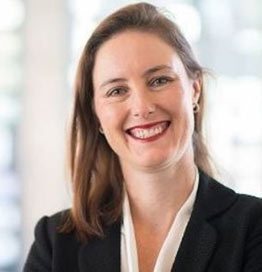
Two new members have been elected to the board of the Australasian Institute of Digital Health (AIDH) following its annual general meeting last week, with two current members also elected.
HealthDirect CEO Bettina McMahon (pictured) will continue as board chair, with existing member Angela Ryan announced as vice chair.
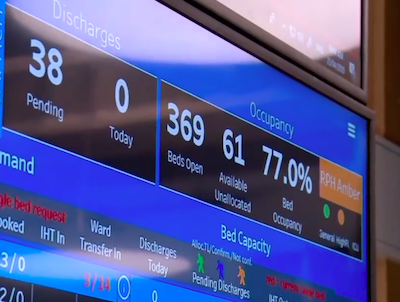
Royal Perth Hospital is looking to roll out an emergency department remote monitoring service using wearable devices following the establishment of its Health in a Virtual Environment (HIVE) service in several medical and surgical wards.
The ED project will extend HIVE’s use of continuous physiological monitoring devices to detect early signs of clinical deterioration, which also involves clinicians at the point of care using audiovisual technology.

The executive director of strategy, services and innovation, at health and disability services NGO Royal Far West (RFW) Katherine Burchfield has been appointed as the next CEO of NPS MedicineWise, beginning next month.
Ms Burchfield is taking over from adjunct associate professor Steve Morris, who is returned to South Australia to head up Arthritis SA.

Medical billing rules engine and clinical coding specialist Synapse Medical Services has partnered with technology and consultancy team EBM Analytics on a technology integration to improve data accuracy for clinical research studies and clinical registries.
The partnership involves an API integration between EBM’s data collection systems and Synapse’s automated clinical coding tool Aircoder.
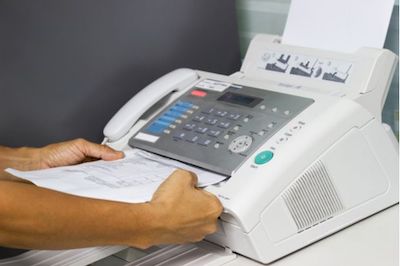
The Australian Department of Health has agreed to extend the arrangements for image-based prescriptions until the end of the year, as a backlash grows in the midst of the COVID-19 crises in NSW, Victoria and the ACT.
The department told Pulse+IT last month that while the subsidy for the SMS costs for GPs issuing electronic prescription tokens would continue until next June, the special arrangements for image-based prescriptions – which allow doctors to email, text or fax a digital image of a paper script to the patient’s pharmacy – were to cease on September 30.

Healthcare providers using MedicalDirector Clinical 4.0 can now access their patients’ bowel and cervical cancer screening data in the National Cancer Screening Register (NCSR) directly through their desktop software.
The MedicalDirector integration with the NCSR, which is is delivered by Telstra Health on behalf of the Australian government, follows a similar integration with Best Practice Software in January.
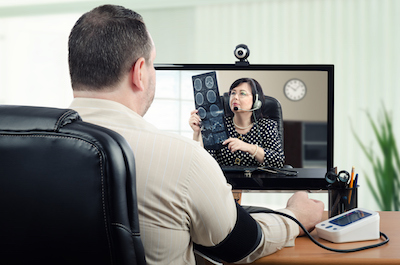
Japan belatedly turns to digital, NHS digital maturity assessment guidance, Baxter buys Hill-Rom, DirectTrust buys SAFE Identity, proof of vax documentation, blood pressure monitoring and Apple Watch, cash-pay telehealth and online pharmacies, AI for dementia diagnosis
Japan opens Digital Agency to boost government technology
AP ~ Mari Yamaguchi ~ 02/09/2021
Fax-based data sharing at local health centers caused delays in recording and sharing information related to COVID-19 patients.
NHSX publishes anticipated ‘What Good Looks Like’ guidance
Digital Health News ~ Andrea Downey ~ 31/08/2021
It’s the first confirmation NHS organisations will be assessed on their digital capabilities since the Digital Maturity Assessments were launched.

The pettiness that can be indulged in by bureaucrats given free rein over government communications with a black pen was laid bare this week with the release to The Canberra Times of the full independent report into the COVIDSafe app and its usefulness during the first 10 months of the pandemic last year.
Readers will remember that a heavily redacted version was released publicly in July, with the vast majority blacked out or blanked out and what remained simply revealing a potted history of the app and its development. We suspected then that the report must have been uncomplimentary and so it has proved, but what was surprising was how ridiculous the redactions were, surely done for political reasons and not based on any great secrets of state.

The Victorian Department of Health has implemented some clinical governance improvements since Targeting Zero report into patient safety released in 2016, but it has only fully implemented one out of the 11 frameworks recommended and it still does not have a fully functioning statewide incident management system, an auditor’s report has found.
The Victorian Auditor-General’s Office (VAGO) report into the Targeting Zero review of 2016 looked at responses to a cluster of infant deaths at Djerriwarrh Health Services between 2012 and 2014.
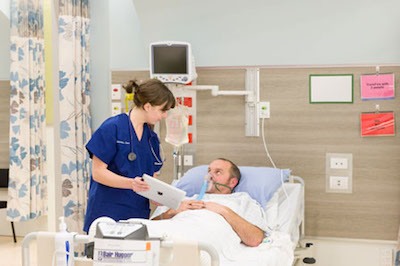
The developers of the South Island’s Health Connect South (HCS) shared electronic clinical record are planning to integrate with the New Zealand ePrescription Service (NZePS) to allow hospital clinicians to view dispensed medications from across the country.
There are also plans to allow referrals to be sent from secondary care out to the community through the system, and in the longer term, plans are afoot for an interactive dashboard for emergency departments.

The federal government has rolled out new aged care vaccine hubs in regional areas of NSW and across the rest of the country in a bid to get the aged care workforce immunised before the September 17 deadline for first inoculations that it has set itself.
The dedicated aged care hubs, being opened for residential aged care, community and in-home aged care workers by health services firms such as International SOS, are being supported by online booking services from HotDoc and a new online residential aged care worker COVID-19 vaccination rates map.
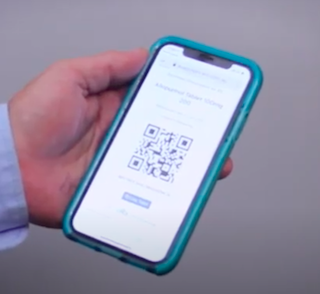
Community pharmacy software vendor Simple Retail has released new functionality allowing users of its Aquarius pharmacy dispense software system to automatically link to the Australian Immunisation Register (AIR) to update vaccination records.
Simple Retail is using its Breeze application to connect to the AIR, rolling out the functionality to beta sites in August with the first vaccination record upload achieved by Broulee Beach Pharmacy on the south coast of NSW on August 25.

The clinical data analytics company formed last year through the merger of health software vendors Pacific Knowledge Systems (PKS) and Pavilion Health has rebranded as Beamtree Holdings, with the ASX-listed company recently buying two smaller companies to form what it says is one of the largest health analytics and decision support platforms in Australia.
Beamtree last week purchased Sydney-headquartered real-time data analytics start-up Ainsoff for $1 million, and announced yesterday it had snapped up Potential(x), best known for operating The Health Roundtable benchmarking and hospital improvement cooperative, for shares and $4 million in cash.
The combined entity now boasts a large suite of products and platforms including automated clinical record coding and classification services, real-time data analytic and benchmarking applications, and AI-based clinical decision support that aims to automate clinical expertise to minimise data errors.

Healthcare communications and nurse call platform vendor Rauland Australia and New Zealand has appointed former Cerner APAC head Cameron Burt as its new CEO.
Rauland executive director Steve Gomes said Mr Burt has in-depth experience working with health departments and healthcare organisations on large-scale and complex programs, both in Australia and overseas.

Medical practice software vendor Shexie Medical Systems has added electronic prescribing functionality to its Platinum system.
Shexie Platinum is one of the few prescribing software systems for specialists that can produce eScripts that are compliant with the new Australian Digital Health Agency (ADHA) specifications.

The Northern Territory is promising faster access to mammogram results with BreastScreenNT becoming the second breast screening service in Australia to connect to the My Health Record system.
BreastScreen WA connected in May last year, allowing women to see their mammogram results as soon as their test is assessed.
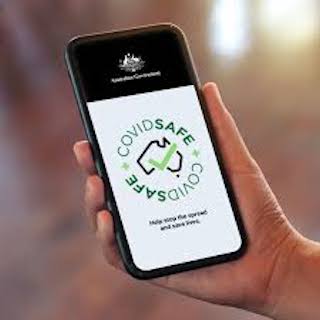
The Australian government’s $8 million COVIDSafe app did not prove useful for contact tracing in the first 10 months of the pandemic, was cumbersome to use and was adding to public health unit workloads without much benefit, an independent report has found.
The report, released to The Canberra Times under a freedom of information review last week having been released in July in heavily redacted format, shows that the app identified less than two per cent of the total pool of close contacts identified in NSW, and no new contacts in Victoria or Queensland between March and November 2020.
The report, by research consultancy Abt Associates with technical assistance from Bdna, found that the app was the correct tool to use based on knowledge at the time of its launch, but that despite some improvements, the app has technology constraints, complications with manufacturer phone settings, and limitations in high-risk settings.
“Overall, the state contact tracers interviewed for this report have suggested it has not been a highly effective complementary tool for their state contact tracing systems,” the report says.
“During our interviews, the primary users and beneficiaries of COVIDSafe, the state contact tracing teams, have noted that the time required to undertake the various COVIDSafe tasks adds to their workloads without an optimisation of benefits.”
It was also cumbersome for contact tracing teams to use and required some manual input. All information needs to be examined on screen and then manually entered into jurisdictional systems or spreadsheets as contact tracers are not able to download the data, automate or match information.
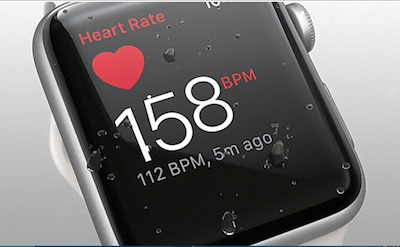
South Africa’s digital systems for vax roll-out, Masimo sues Apple over smartwatch, virtual network for SickKids, demise of Google Health, Wales’ digital pandemic response, WebMD eyes appointments, Microsoft Power Apps misconfiguration
The digital infrastructure behind South Africa’s vaccination roll-out
The Evening Standard ~ Ghazal Abbasi ~ 16/08/2021
From scheduling, registering and recording vaccinations to monitoring supplies and site capacity, the Electronic Vaccination Data System (EVDS) is the digital infrastructure underpinning South Africa’s roll-out.
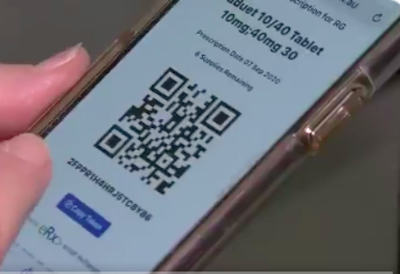
You know that saying about how the definition of insanity is doing the same thing over and over again and expecting a different result? It’s usually misattributed to Albert Einstein or George Bernard Shaw but there’s decent enough evidence that it was first muttered by a member of Al-Anon about a dodgy family member who liked too much of a tipple.
Pulse+IT was pondering this profundity this week when we heard word that the Australian Digital Health Agency was setting out once again on the quest to develop a national digital health strategy that would deliver the Australian health system into a glorious digital future. ADHA is required to develop a new strategy as the last one is due to run out next year, and it has now set upon the usual round of consultations with the usual suspects.

New Zealand’s Ministry of Health has launched a mobile-based vaccine safety surveillance tool to help monitor reactions to the Pfizer vaccine, designed to accompany the existing online reporting system.
It is also working on new digital certificates that will record COVID-19 health status, including vaccination and test results.
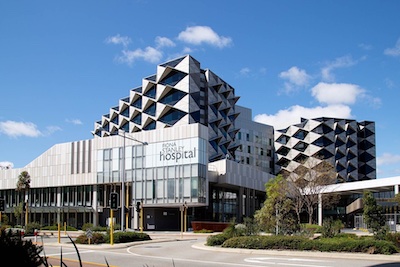
Government services contractor Serco has brought some specialised ICT and digital services previously outsourced to IT services provider BT at Perth’s Fiona Stanley Hospital (FSH) under its wing after 10 years.
Serco has also gone to tender for a new communication and collaboration solution for FSH to replace its paging system, with the potential for it to be rolled out to the rest of the South Metropolitan Health Service (SMHS).

St Vincent’s Health Australia (SVHA) has reduced the number of hospital-acquired complications (HACs) across its private health network by 16 per cent in one year and achieved another 13 per cent this year with the assistance of Pacific Knowledge System’s (PKS) RISQ portal.
The move to reduce the number of HACs in Australian hospitals has been driven by the Australian Commission on Safety and Quality in Healthcare (ACSQHC), which in 2019 published a list of 16 nationally agreed HACs to be targeted, in partnership with the Independent Hospital Pricing Authority (IHPA).

The Australasian Institute of Digital Health (AIDH) has postponed its Digital Health Institute Summit until next year due to the current COVID-19 situation.
The summit was to be held in person in Melbourne and online in October. It has now been pushed back to February 21-22.

GP clinic operator Better Medical will roll out PracticeHub’s online practice management platform at its 85 clinics in South Australia, Queensland, Tasmania and Victoria.
PracticeHub, a division of medical defence organisation Avant Mutual, is a purpose built, integrated bundle of applications designed to help navigate the complexities of running a modern healthcare business.

The Australian Digital Health Agency has kicked off the first stage in the development of the next national digital health strategy, which it plans to have in place in mid-2022.
The new strategy follows the 2018-2022 version released in 2017, which involved seven strategic priority areas, including access and use of My Health Record, electronic prescriptions, secure messaging channels and agreed standards for interoperability.
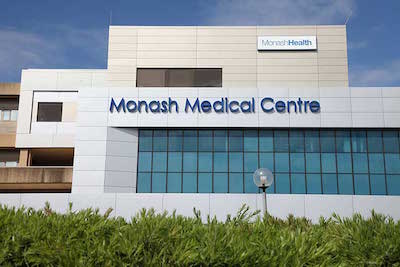
Melbourne’s Monash Health plans to set up a new virtual hospital service to look after patients in their own homes, asking remote monitoring software vendors to help with a proof of concept trial centring initially on patients with congestive heart failure at risk of readmission to hospital.
Should the proof of concept prove successful, the plan is to roll the virtual hospital model out to other patients with chronic conditions such as chronic obstructive respiratory disease, patients undergoing cancer therapy, and patients with diabetes.

The healthcare sector has topped the list of notifiable data breaches reported to the Office of the Australian Information Commissioner (OAIC) in its latest six-monthly report from January to June 2021, with 85 data breaches or 19 per cent of the 446 in total.
While ransomware makes up 24 per cent of the 192 notifications resulting from cyber security incidents, the OAIC says a number of entities did not think that a ransomware attack was an eligible data breach due to doubts over whether data had actually been exfiltrated.

Digital health commercialisation organisation ANDHealth and medical technologies growth centre MTPConnect have received grants of $19.75 million each over three years to work with small to medium-sized enterprises on the early stage development of digital health and medical device technologies with commercial potential.
Part of the Australian government’s $20 billion Medical Research Future Fund (MRFF), the grants provide project funding of between $250,000 and $1.5 million to the SMEs over three years to progress research and innovation projects.

Public health and venture capital, digital health training needs, Cerner’s new CEO, Israel’s digital health boom, IT skills shortages in healthcare, BlueJeans Telehealth integrates with Apple Health, virtual primary care certificate, app-only PHRs and senior citizens
What happens when nonprofit hospitals experiment as venture capitalists
Washington Post ~ Jordan Rau ~ 17/08/2021
A digital tool promised to help patients manage their diabetes. Then the hospital behind it pulled the plug.
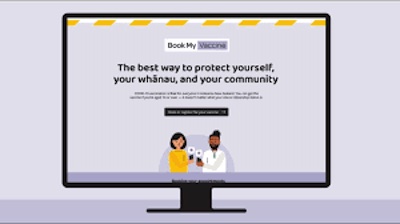
New Zealand’s Book My Vaccine website has stood up well to the onslaught of interest in online bookings since it went live late last month, Prime Minister Jacinda Ardern said.
Wednesday this week saw a record 195,537 people making a booking in a single day, and new functionality will be added to allow parents to book themselves in along with any children aged 12 to 15, who are now eligible to be vaccinated, she said.
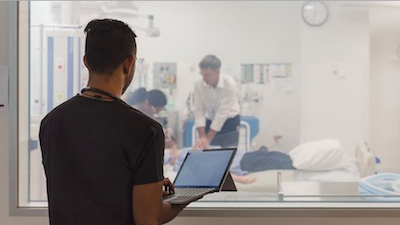
Sydney is under curfew, NSW as a whole is in lockdown, Victoria is holding steady, there are new restrictions in the ACT, the NT and New Zealand, and even Tasmania is foreshadowing the ominous things to come by releasing its lockdown protocol ahead of anything like a recent local infection.
Strange days indeed, and not likely to change in the immediate future. We hear that the Australasian Institute of Digital Health is shortly to announce it will go fully virtual with its planned half virtual/half in person hybrid conference in Melbourne this year, and will not be surprised if HINZ’s Digital Health Week NZ in-person conference scheduled for late November in Wellington suffers the same fate as NZ enters stage 4 lockdown and three new cases are reported in Welly today.

South Australia has awarded a tender to Allscripts to implement the iQemo solution from UK company iQHealthTech for the long-promised statewide electronic chemotherapy prescribing solution (ECPS).
The solution will be integrated with SA Health’s Sunrise EMR, provided by Allscripts, and will be rolled out to more than 20 hospitals and facilities across SA Health sites that offer cancer treatment services.

UnitingCare Queensland (UCQ) will roll out the InfoMedix Digital Medical Record (DMR) at three of its four not-for-profit hospitals next year, beginning the move from predominantly paper to a digital system that will give clinicians a single view of the patient record.
UnitingCare Queensland will deploy the DMR from early next year at the Buderim Private Hospital on the Sunshine Coast, followed by the 530+ bed Wesley Hospital in Brisbane’s Auchenflower and the 250+ bed St Andrew’s War Memorial Hospital in Spring Hill.
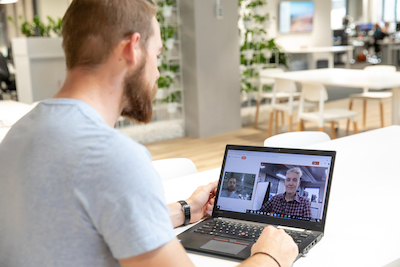
Three senior Australian Digital Health Agency (ADHA) executives have left the organisation to join public health information service Healthdirect Australia to work on the national vaccine roll-out.
Travis Hodgson, previously chief of staff to ADHA CEO Amanda Cattermole and a former general manager for programs and engagement, joined Healthdirect this month as an executive director.

The Office of the Australian Information Commissioner (OAIC) plans to appraise how well general practices are complying with the security policy requirements of the Australian privacy principles when accessing the My Health Record system.
The OAIC has powers under the Privacy Act 1988 to conduct privacy assessments to provide an independent and systematic appraisal of how well an agency or organisation complies with all or part of its privacy obligations.

Health insurer nib is offering international student members access to a new primary care telehealth program through a partnership with 24-7Healthcare.
The service, dubbed 24-7MedCare, will provide access to virtual consultations with a GP at no additional cost. If successful, nib says it will explore the opportunity to open the program to more members.

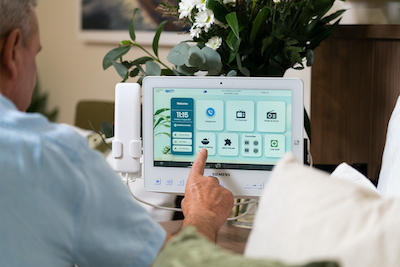
Nurse call, patient infotainment and clinical communications technology vendor Rauland Australia has rolled out its Concentric Care platform at South Australian home care provider ECH’s new care hotel in Adelaide.
ECH’s Dandelion centre is a new model of care featuring eight short-stay suites for older people discharged from hospital who need more intensive care than they can receive at home, along with eight respite care suites for people living with dementia.

The Australian Digital Health Agency (ADHA) is setting up a readiness register of clinical software products that are compatible with the move to new SHA-2 security and authentication certificates, which will affect the National Authentication Service for Health (NASH) certificate renewal process.
SHA-1 PKI certificates will no longer be issued after March 13, 2022 due to known vulnerabilities. ADHA plans to begin the move to SHA-2 for NASH certificates this September, affecting all software that connects to the Healthcare Identifiers (HI) Service, the My Health Record system, electronic prescribing and secure messaging.

The Australian Department of Health will continue to subsidise the SMS costs for GPs issuing electronic prescription tokens to patients’ mobile phones until the end of June 2022.
However, it intends to cease the special arrangements for image-based prescriptions rolled out at the start of the COVID-19 pandemic as scheduled on September 30 this year.
Image-based prescribing allowed doctors to email, text or fax a digital image of a paper script to the patient’s pharmacy following a telehealth consult.
Copyright © 2025 Pulse IT Communications Pty Ltd. No content published on this website can be reproduced by any person for any reason without the prior written permission of the publisher. If your organisation is featured in a Pulse+IT article you can purchase the permission to reproduce the article here.
Website Design by Get Leads AU.